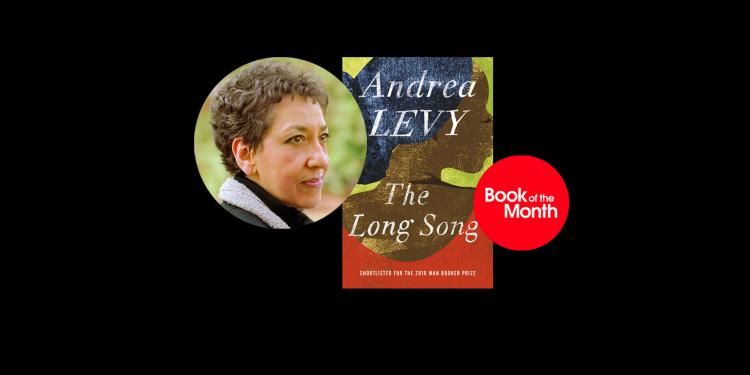
Reading guide: The Long Song by Andrea Levy
Discover our comprehensive reading guide to Andrea Levy’s novel, set during the turbulent years of slavery and shortlisted for the Booker Prize in 2010

Andrea Levy, the author of our June Book of the Month, The Long Song, died in 2019. Here we reproduce some of her comments on the book, including how and why she wrote it
‘Small Island, my last novel, was set just after World War Two and it concerned Afro-Caribbean people coming to Britain. It seemed natural that I would then want to go back to find out where that relationship began between the Caribbean, Jamaica and Britain, so after a while it seemed like the right thing to do. I had to do it.’ - From an online interview with her UK publisher, Headline
‘One of the reasons I wanted to write this book was that I was at a conference and a young woman got up and asked how she could be proud of her heritage when her family had been slaves. So one of the things I would love the book to do is make anybody of that heritage feel absolutely, “Wow, I come from people who survived and thrived through this 300 years of slavery.” They survived and built a culture.’ - From an interview with The Scotsman
‘I researched as widely as I could for the book in libraries and museums. I read a lot of accounts that were written by white people at the time; planters and the like. And I tried to read between the lines to see how the Black people around them would actually live. As I researched I realised there were very few surviving documents or accounts that were written by the slaves themselves, about the lives they lived. It felt like 300 years of slave society was somehow lost, somehow silent or missing. This is where I feel fiction comes into its own. In The Long Song I wanted to put back those voices.’ - From a video interview with Headline
‘Once I had tuned in to the prejudices and the weird worldview of these white people of the time, I found it was possible to flip the picture and stare back at these testimonies from the point of view of the people they were describing.’ - From an interview with The Daily Beast
‘When you try to imagine slavery in terms of what happened, it’s almost unthinkable. But people got through it. Not every day was: “Got up, got whipped thoroughly, saw someone hung from a tree”. So I try to give a sense of the daily life – the “drinking milk and eating yam” of it – as well as the lives of the planter class. I try to give people their humanity.’ - From an interview with The Guardian
‘The last thing I wanted to do was to write a book about slavery in Jamaica. Why? Because I thought any book about slavery had to be a book about misery and violence.’ From a video interview with Hachette
‘I wanted there to be joy in this book; fun, as well. I had to tread a fine line. It was never going to be “Carry On up the Plantation”, but also I didn’t want it to be just so harrowing that nobody could read it. I wanted a book that everyone could read and everyone could enjoy.’ - From an interview with The Scotsman
‘I didn’t want anything mythical about slavery. These were people like you and me. Imagine yourself as a slave, how would you cope if someone was making you do something and you didn’t want to do it? They are not people who could endure this any better than we can now. I wasn’t looking at downtrodden victims, I was looking at people who were surviving as best they could under the most incredibly difficult circumstances. Because of that it felt like a real story of human spirit.’ - From an interview with The Scotsman
The Long Song by Andrea Levy
‘We’re beginning to understand more about the Caribbean’s relationship with Britain, and about how the Caribbean has been left out of British history. You cannot have an American history without looking at slavery, but in Britain, because it was in the Caribbean, we can have a British history without looking at slavery. And that is my passion: that Caribbean history comes back to the centre of British history.’ - From a Grazia Book Club live event
‘It will always mean a lot. It’s such a big prize. If you’d ever told me that one day I would be on the shortlist for the Booker, I’d have thought you were insane. Being on the shortlist for the Booker is almost a prize in itself. It stays with you. It’s not like being on the shortlist for anything else.’ - From a Grazia Book Club live event
